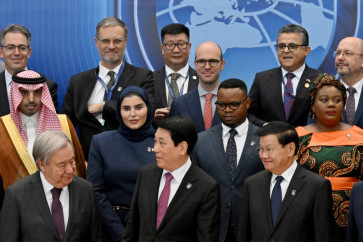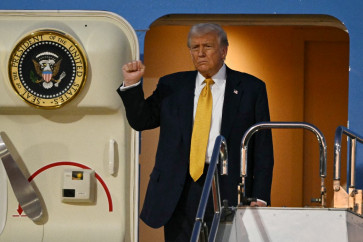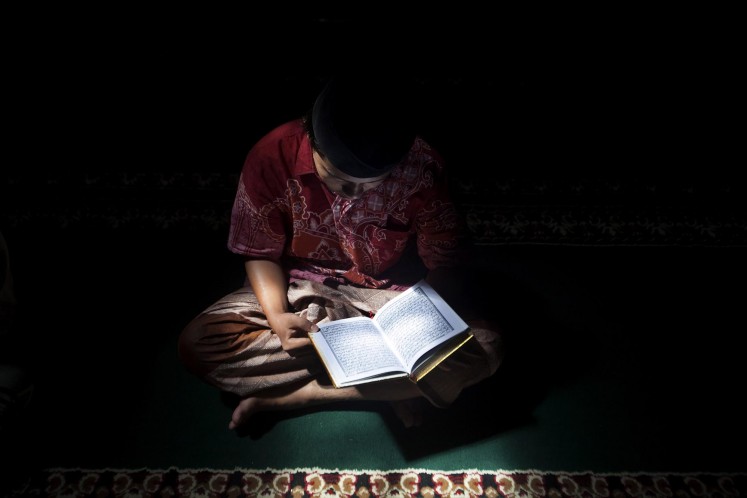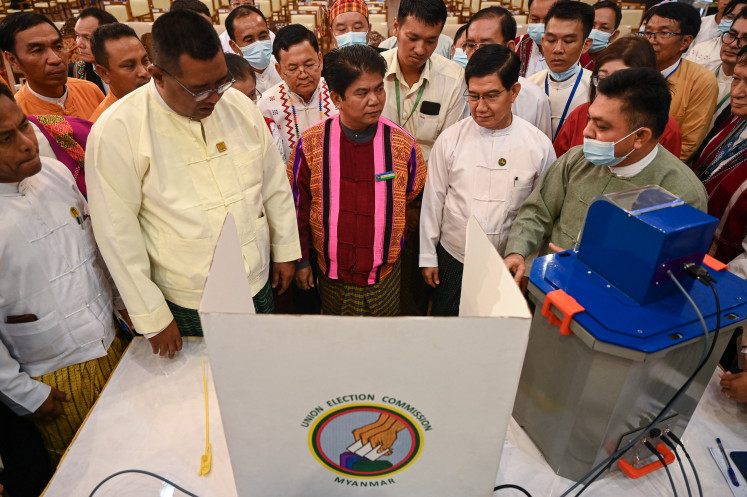Popular Reads
Top Results
Can't find what you're looking for?
View all search resultsPopular Reads
Top Results
Can't find what you're looking for?
View all search resultsWill deradicalization lead to de-Islamization?
Every time a terrorist attack occurs in Indonesia, the idea of “deradicalization” is always discussed
Change text size
Gift Premium Articles
to Anyone
E
very time a terrorist attack occurs in Indonesia, the idea of “deradicalization” is always discussed.
Not long ago, a number of officials and observers also proposed that the Indonesian government introduce a program to “deradicalize” the perception of Islam among youths. This was especially true following acts of terrorism widely reported in our media, coupled with the release of a research report by Syarif Hidayatullah State Islamic University that found around 50 percent of young people in Jakarta condoned the use of violence in the religious realm.
Did the research only involve respondents from Muslim backgrounds? Or were non-Muslim youths involved? If non-Muslim youths were included would the result have been the same?
Our Islamic institutes, particularly those with a Western slant, generally prefer to explore the weaknesses in the Muslim community itself, for the sake of gaining economic advantage from Western countries.
Although they are followers of Islam, their practice of criticizing Islam has become a source of pride because such researchers will be appreciated by Western nations and non-Muslims.
Western countries are very keen on Muslims who are fond of finding fault with their own religion.
For example, the Muslim author Salman Rushdie received various awards from the West after writing The Satanic Verses, a novel that insulted Islam.
In our country, quite a number of people have proudly appealed to open diplomatic ties with the Israeli regime for various reasons. Ironically, they claim to be true democrats. They pretend to be unaware that the Israeli regime is undemocratic because it has violated the human rights of Palestinians.
It would be better and more elegant for Muslims who notice the weaknesses of an Islamic movement to directly give their input to the leadership of the relevant organization. Ironically, they just prefer to make the issue a “research project” that produces economic gain from Western donor institutes and foundations, at the risk of creating conflict between themselves and “fundamentalists”.
They prefer to ally themselves with the West to oppose their fellow believers. Those who always claim “to uphold principles of democracy” are oddly reluctant to have dialogues and discussions with their dissenting fellow believers. Consequently, any difference of opinion tends to be settled through conflict and violence. This pattern applies not only nationally but also internationally.
However, a different view has been voiced by former coordinating economic minister Dr. Rizal Ramli and an Islamic political expert from the National University of Malaysia, Dr. Abdul Halim Mahally.
As Rizal wrote in Rakyat Merdeka Online: “The phenomenon of radicalization of a group of Indonesian citizens, including those with religious labels, has arisen and developed along with the government’s failure in increasing employment, lessening unemployment and reducing the number of poor people. The gap separating the haves and the have-nots in the country is widening instead of narrowing. The display of wealth by a small group of people occurs when the greater part of the population has to strive hard to survive and is marginalized.”
Meanwhile, Mahally, also writing in Rakyat Merdeka Online, maintained it was “regrettable that handling terrorism in Indonesia centers more on the aspect of ideology. There are many factors affecting the growth of terrorism, while only ideology is being widely discussed. The roots of the bomb issue are in fact diverse. Poverty, revenge and oppressive authorities are the other causes of thriving terrorism in Indonesia. But why is attention more often paid only to ideology?”
The views of both experts obviously offer a perspective different from the mainstream opinion lately. So far radicalism and terrorism have merely been connected with “Islam”. As a result, the subconscious of the nation’s majority always links acts smacking of terrorism or radicalism with Islam.
Though our public officials have reiterated “terrorism has nothing to do with some religion”, it seems the connection is hard to deny. Recently the public anxiety following the “brainwash” operation was also linked with Islam.
Gradually but surely Islam will become a specter frightening all circles. The further impact is that the “deradicalization” program is translated by officials at lower levels into “de-Islamization”, as in the recent case when a local official said that anybody with a beard and turban should be watched out for.
Later on, Muslims going to mosque could be put under surveillance. What would happen then, if community members were suspicious of each other?
Therefore, eradicating radicalism and terrorism down to their roots should be interpreted — in the views of Ramli and Mahally — as promoting people’s welfare and enhancing the sense of justice among members of all strata of society.
And on the international scale, it would reflect how our government could actively participate in putting an end to acts of violence in Palestine, Iraq and Afghanistan, which has proven to be a hotbed of the virus of terrorism.
The writer is a researcher at the Indonesian Institute of Sciences (LIPI).










